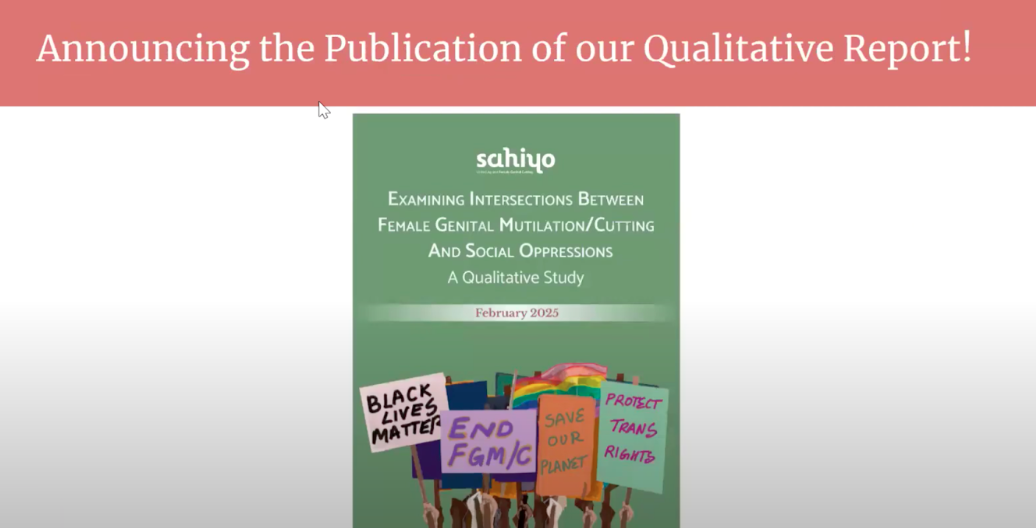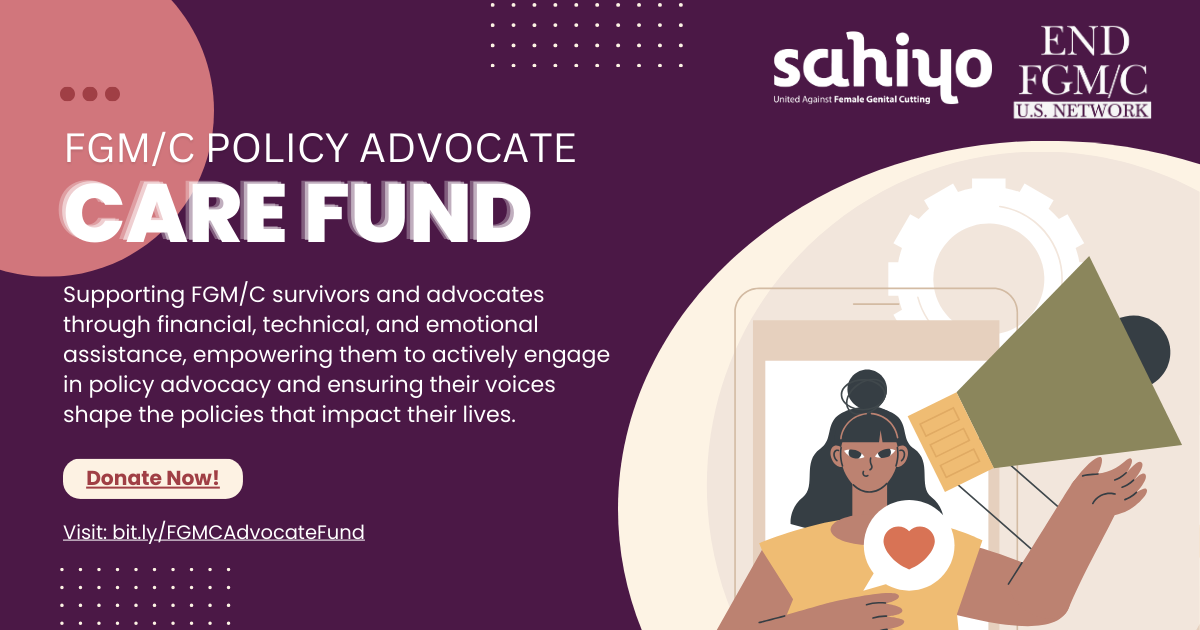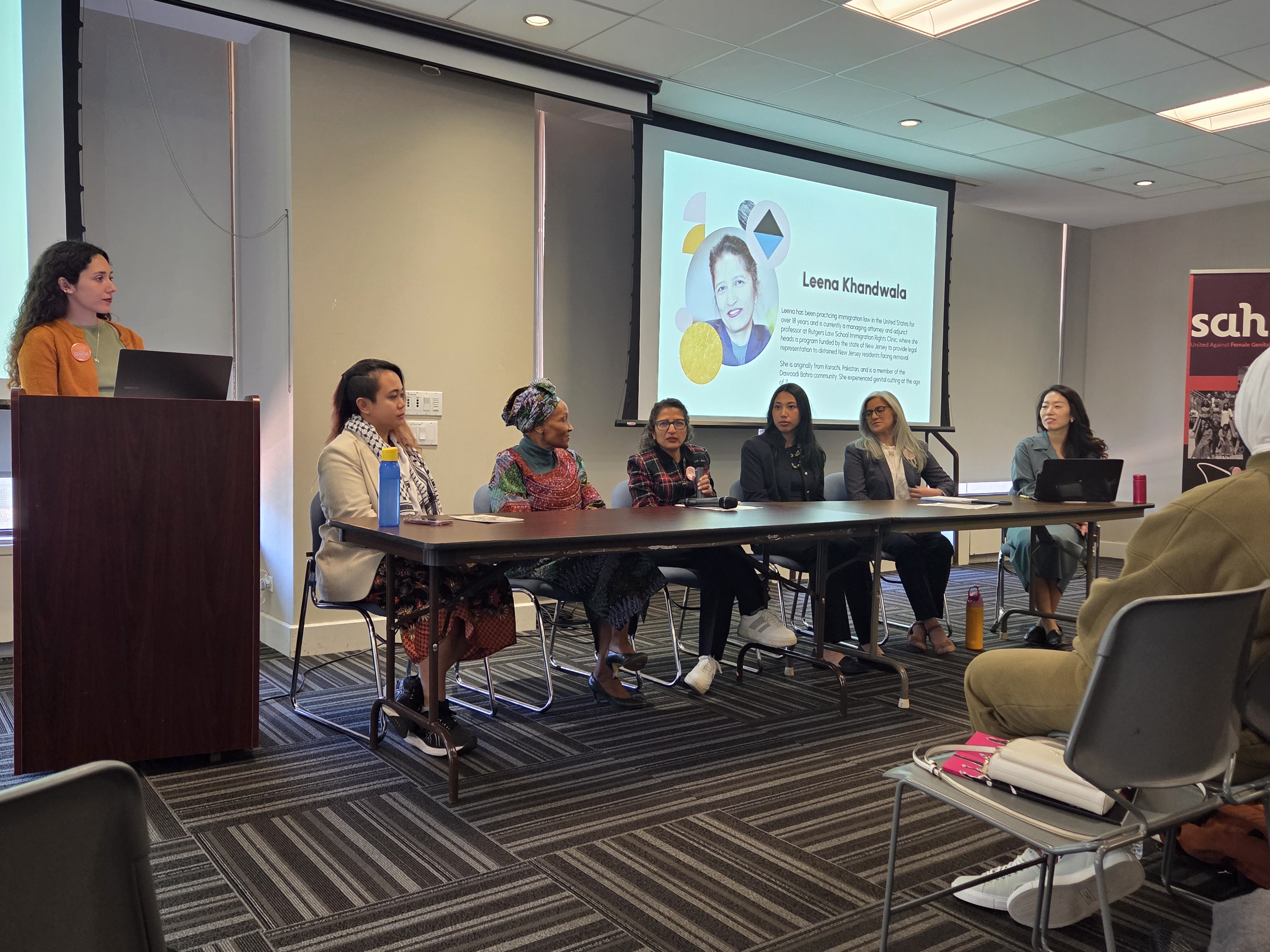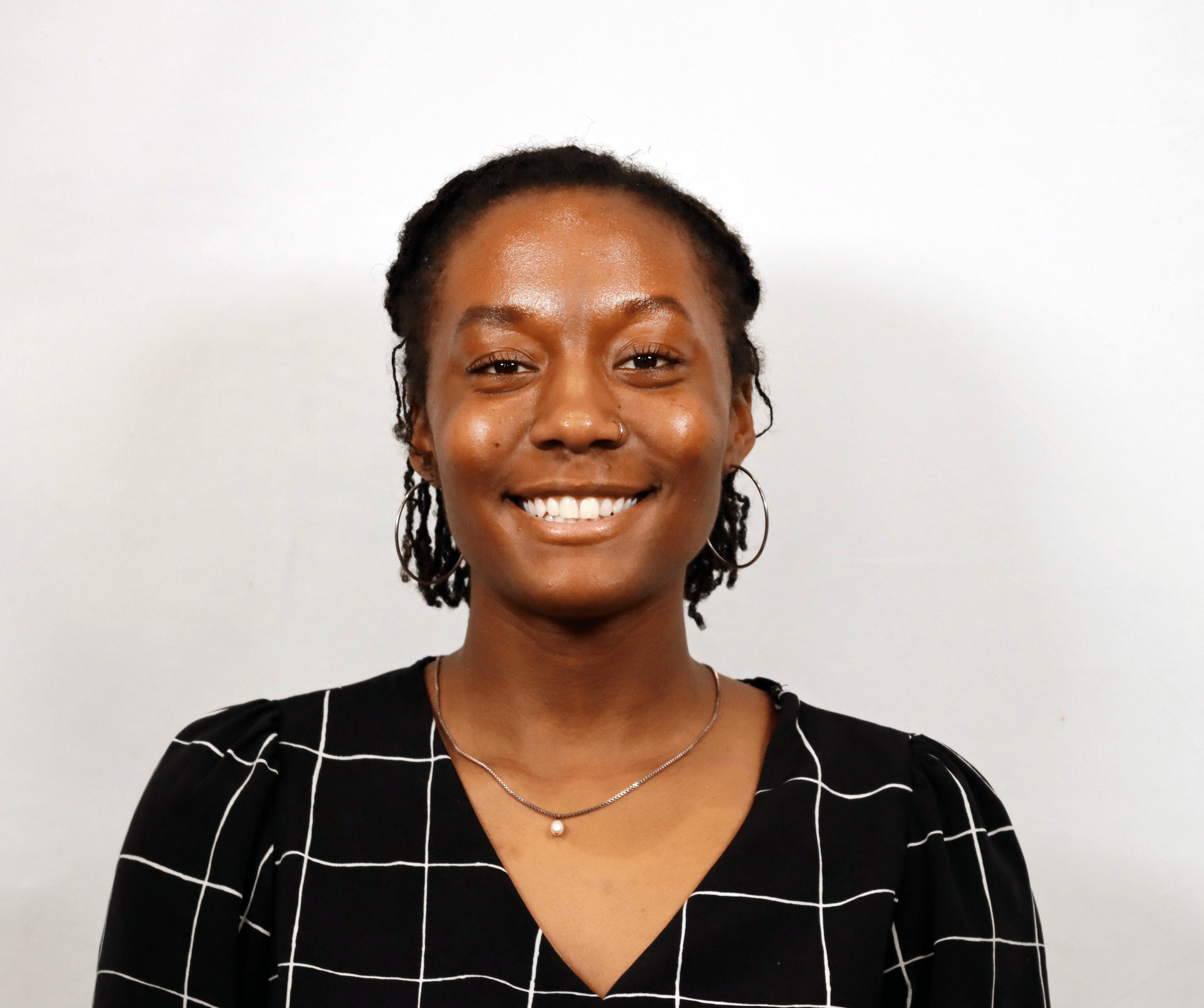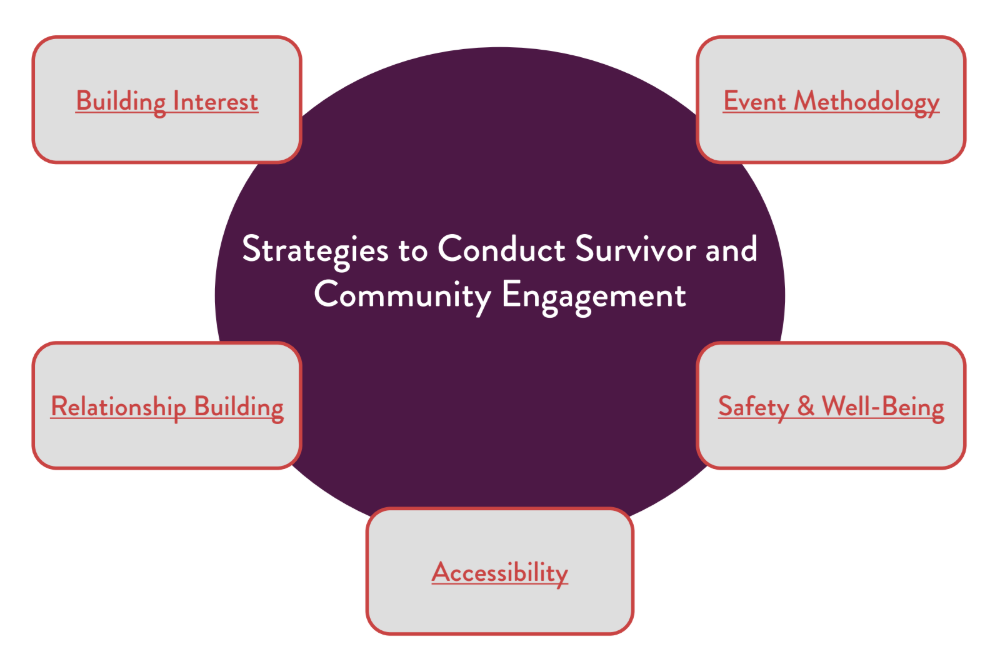On February 27th, Sahiyo’s Research Coordinator Rachel Wine, and Executive Director Mariya Taher led the webinar, “Intersectional Approaches Strengthen Alliances and Build Movements to End FGM/C,” to announce the publication of the third and final report for Sahiyo’s Critical Intersections Research Project project, Examining Intersections Between Female Genital Mutilation/Cutting and Social Oppressions: A Qualitative Study.
The event explored Sahiyo’s Critical Intersections Research Project from its inception in 2021 to the present in 2025. Mariya shared how a 2021 webinar focused on how racism impacted the movement to end FGM/C inspired the Critical Intersections research project. While, Rachel gave an overview of the findings from our first two reports:
- Examining the Current State of Critical Intersections: Female Genital Mutilation/ Cutting and Social Oppressions
- Examining Intersections Between Female Genital Mutilation/Cutting and Social Oppressions A Mixed Methods Study
Throughout the course of this three-year project, many researchers supported the work and they too shared their experiences during the webinar with partner researcher Naquia highlighting the key intersections found in this newest report: race/racism, LGBTQIA+ issues, gender inequities, and religious discrimination.
Another partner researcher Jessica Puri and Project Advisors Aarefa Johari and Saza Faradilla spoke about their experiences with intersectionality in their own work surrounding FGM/C, and how the findings from the report can strengthen the movement to end FGM/C.
In specific, Aarefa discussed how religion intersects with FGM/C in India, and Saza touched on the benefits of framing FGM/C through the lens of gender to recognize FGM/C is a form of gender-based violence.
Naquia spoke to the framing aspect and asked readers of the report to consider the importance of language and the complex nature of FGM/C when engaging in activism to end it
Rachel ended the webinar, by uplifting the four recommendations from the report:
- To coordinate with social service sectors across various social justice issues
- Improve language and framing of FGM/C
- Increase education on how FGM/C is intersectional
- Implement more diverse and equitable approaches to data collection, analysis, and dissemination
Each recommendation was accompanied by a suggested action item for those in the FGM/C sphere to help them incorporate intersectionality into their approaches and advocacy. As the anti-FGM/C field looks to the future of their work, the Critical Intersections Research Project makes it clear that intersectional collaboration is crucial to creating social change and ending this human rights violation.
Watch the webinar recording here. Learn more about the Critical Intersections Research Project here.

